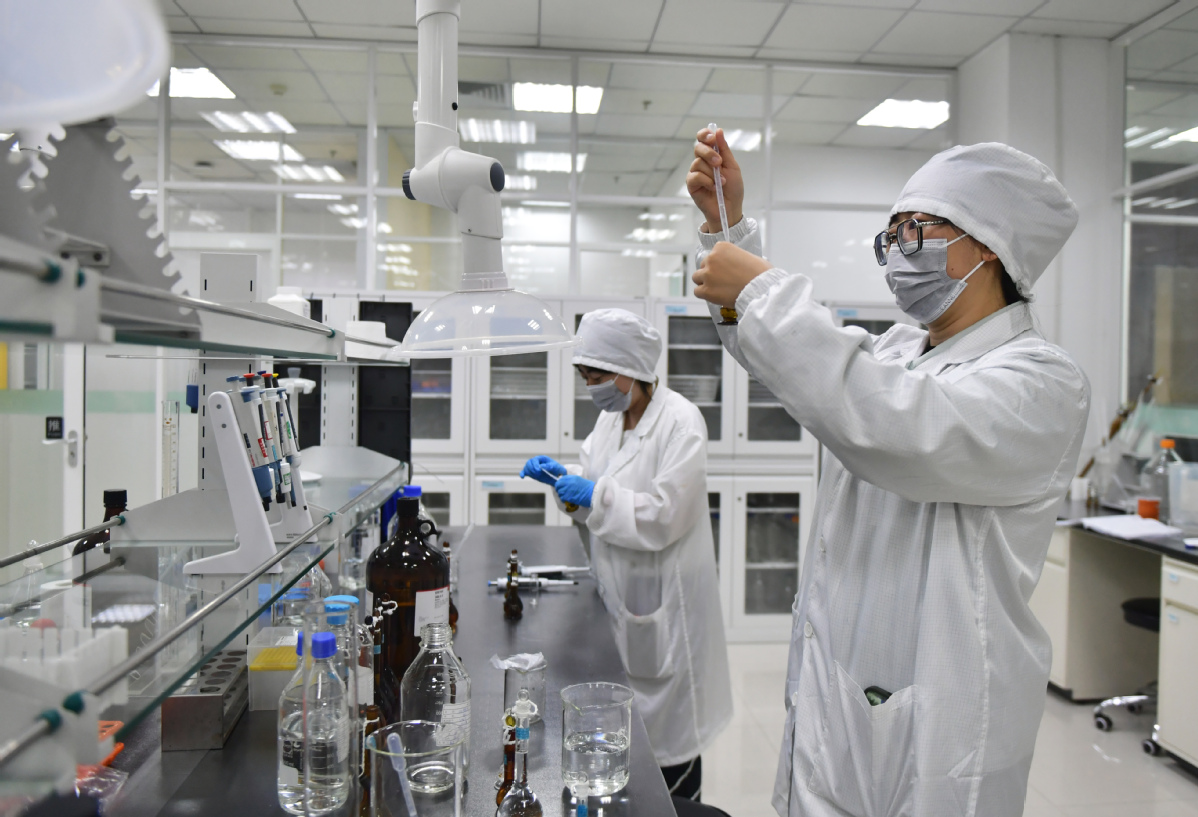
Employees examine drug samples at a laboratory in Shenyang, Liaoning province, in May. [Photo/Xinhua]
BEIJING -- Premier Li Qiang on Monday presided over a State Council executive meeting that approved a guideline on strictly regulating enterprise-related administrative inspections and made arrangements for further reform on the regulation of medicines and medical devices to promote the high-quality development of the pharmaceutical industry.
Enterprise-related administrative inspections should be strictly regulated with a focus on stabilizing market expectations and improving law-based governance, according to the meeting, which noted that there had been arbitrary actions by certain localities and departments that impacted enterprises' operations and the business environment.
It said that inspection standards and procedures should be strictly enforced, and efforts should be made to strengthen oversight on administrative inspections, reduce the frequency of on-site inspections and eliminate arbitrary ones.
The meeting called for deepening the reform of the entire medicine and medical device regulation process to increase China's pharmaceutical strength and meet public demand for high-quality medicines and medical devices.
Work should be done to support the research and innovation of medicines and medical devices, improve the quality and efficiency of review and approval processes, enhance regulatory oversight, and support the pharmaceutical industry in seeking further opening-up and cooperation, according to the meeting.
It also studied enhancing regulatory capacity on all food safety links. It was briefed about the incentive and constraint mechanisms to promote high-quality development through transfer payments.
The meeting said that transfer payments should play a role in guiding local high-quality development, and the incentive funds should be tilted to regions with greater tax contributions and faster income growth.
The meeting approved draft rules on standardizing intermediaries' services for the public stock offerings of companies.